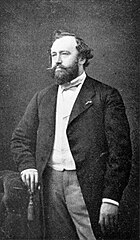You Are What You Listen ToCan music really help you think better? Yes, according to the research that has been done so far.
Listening to, and participating in music creates new neural pathways in your brain that stimulate creativity. Studies have shown that music actually trains the brain for higher forms of thinking. There was a study at the University of California, for example, about 10 years ago.
Researchers followed the progress of three year olds, split into two groups. The first group had no particular training in, or exposure to music. The second group studied piano and sang daily in chorus.
After eight months the musical three year olds were much better at solving puzzles. When tested, they also scored 80% higher in spatial intelligence than the non musical group. With such a dramatic difference, there is bound to be more research like this in the future.
There is also anectdotal evidence that listening to music, especially from Mozart's era, can help you study and learn better. Hopefully there will be research done to confirm or disprove this soon, but there is really no good reason not to do your own experimentation in this area. Stephen King writes with loud rock music playing, so maybe any benefits here are according to your own tastes or brain-organization.
Brainwave EntrainmentWant to listen to some music, and get smarter? There are a number of products out there that are based on an entirely different principle than the research mentioned above. They rely on "entraining" your brainwaves, in order to put you in a meditative state.
Brain wave frequencies vary according to mental state. Daydreaming and light meditation usually take place in the "Alpha" range of frequencies, for example. So if you listen to music containing beats at a frequency of 10 Hz it will feel very relaxing, because your brain will begin to follow this frequency and reproduce the rhythm in the music. You will automatically generate more brainwaves at a 10 Hz frequency and enter a relaxed Alpha mental state.
What these new products do is embed music with beats and pulses that entrain your brain waves to a specific frequency. You just put in the right CD or MP3 for your activity (you don't wan't an Alpha state for analytical work), and you get better brain function. Science? Partly.
It is well established that our brain wave frequencies change with our mental states and vice-versa. It is has also been clearly demonstrated that meditators can go into an alpha state at will, and that this has beneficial effects (lowering of stress, blood pressure, etc.). Do the tapes accomplish this more easily?
Yes, in my experience. I've found two products that put me in a peaceful state unlike any other music or meditative practice. Studies will prove the effects (some have already), and disprove the wilder claims of some of these products. Given the results I experienced, however, I wouldn't wait for the research, any more than I would have waited for proof of the existence of vitamin C before I'd continue eating limes to cure scurvy a hundred years ago.
Wait for more evidence of the benefits of brainwave entrainment, if you must, but why not try classical music the next time you need to study, just to see if it helps? Experiment with music - I haven't yet heard of any damage caused by Mozart.
Adopted from :
www.buzzle.com/editorials/4-5-2005-68163.asp
 The Hallelujah Chorus, from Handel's Messiah, is one of the most well-known musical pieces from the baroque period.
The Hallelujah Chorus, from Handel's Messiah, is one of the most well-known musical pieces from the baroque period.




